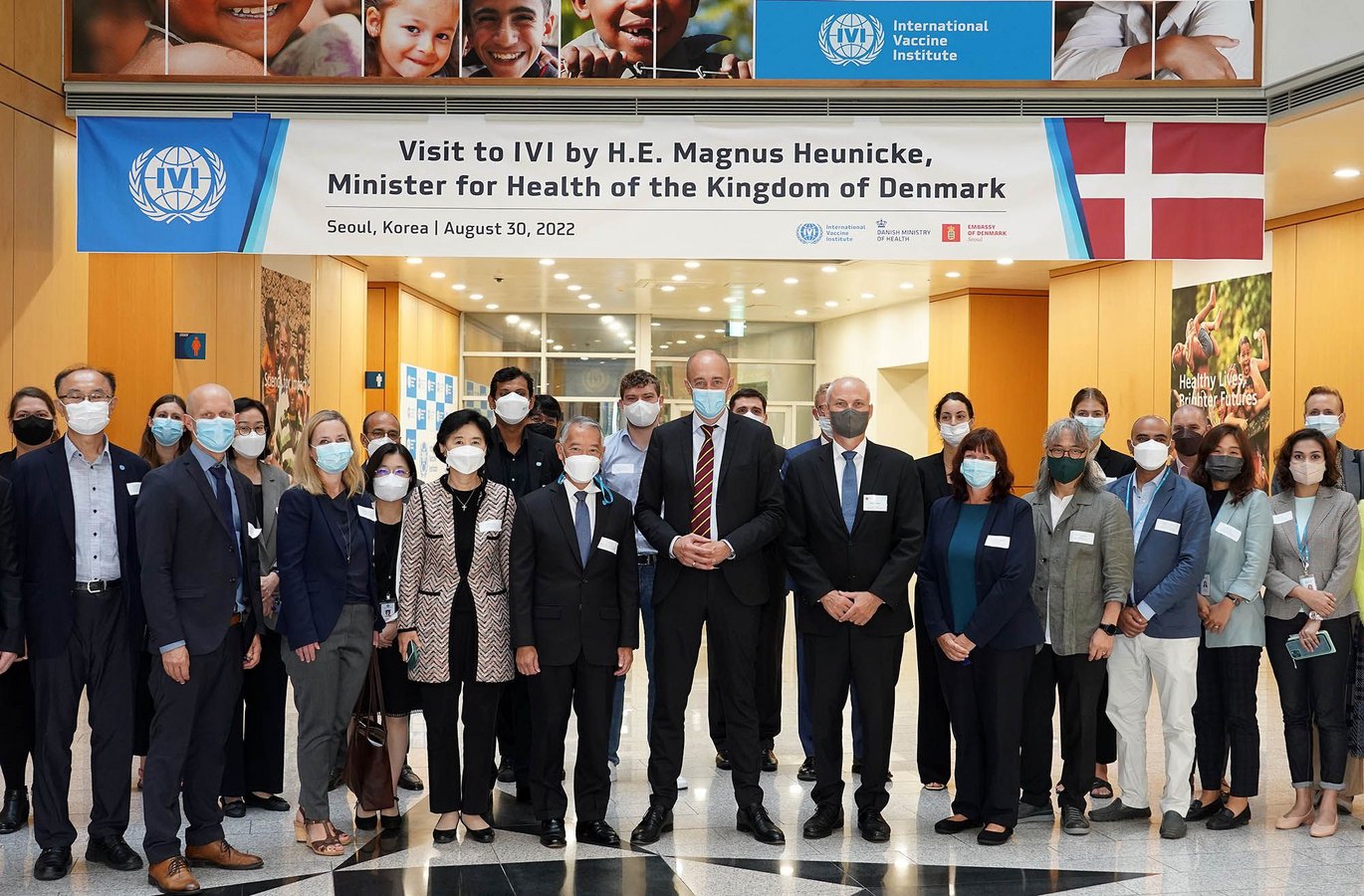Aarhus University represented during ministerial visit in Korea where global health was on the agenda
The Department of Animal and Veterinary Sciences must contribute to the establishment of important networking between Denmark and Korea/Asia in relation to supporting the One Health agenda and fighting antibiotic resistance at global level by balancing and optimising the health of both animals and humans.

WHO has declared antimicrobial resistance (AMR) one of the ten biggest threats to humanity as antibiotic resistance is believed to be the cause of more than 1.2 million human deaths annually, and the problem is increasing. Researchers at AU have received a network grant with Seoul National University (SNU) to establish new collaborative networks between Denmark and Korea/Asia, which can contribute to the efforts to combat AMR at a global level. In this connection, Associate Professor Tina Dalgaard from the Department of Animal and Veterinary Sciences at Aarhus University has been on a long-term stay at SNU.
International collaboration on restricting the world’s use of antibiotics
AMR is a global problem that requires international collaboration on restricting the world’s use of antibiotics for animals and humans, e.g. through research into new methods for the prevention and treatment of infectious diseases, including the development of new vaccines. This topic was on the agenda during a seminar on August 30 which was conducted at the International Vaccine Institute (IVI) in connection with the Danish Minister for Health, Magnues Heunicke’s visit to Korea. The seminar was organised in collaboration with the Danish Embassy and the Innovation Centre Denmark Seoul and included presentations from Henrik Ullum (SSI) Robert Woods (ICARS), Tina Dalgaard (AU) as well as Korean partners from IVI, the Department of Pasteur and SNU.
Presentation from Aarhus University
AU's presentation focused on the strong connection between animal and human health and emphasised the importance of addressing the challenges of antimicrobial resistance based on a 'One Health ' perspective – i.e. with focus on balancing and optimising the health of both humans, animals and the surrounding environment.
"ANIVET has many years of experience in research on alternatives to antibiotics and has a strong focus on One Health in future activities. We have just completed a major project portfolio under the Veterinary Settlement III, which for our part was primarily concerned with research in feed and management strategies for the reduction of antibiotics in pig production. Furthermore, we are coordinating a big international project, ‘Pig-Paradigm’ (Preventing Infection in the Gut of developing Piglets – and thus Antimicrobial Resistance – by disentAngling the interface of DIet, the host and the Gastrointestinal Microbiome), which is supported by the Novo Nordisk Foundation. The mission of this project is to advance knowledge on how to strengthen piglets’ natural defense to reduce the need for antibiotics and thereby contributing to the reduction of overall antimicrobial resistance worldwide” Charlotte Lauridsen, Head of the Department of Animal and Veterinary Sciences at Aarhus University explains.
New network collaboration
The network project, where AU and SNU in collaboration will establish a research and education partnership to find innovative solutions that can ensure the health of domestic animals is financed by the Ministry of Research in Denmark. In addition to the two universities, ICDK plays an important role in the establishment of the new collaborative network.
"Korea is among the world's leading hotspots for research and innovation with massive public and private investments in research. At Innovation Centre Denmark Seoul, we work to establish and facilitate collaborations between Danish and Korean universities, companies and public organisations with a view to improve the Danish innovation power," says Inie Nør Madsen, Science and Innovation Attaché at Innovation Centre Denmark in Seoul.
Further information
Head of Department Charlotte Lauridsen, Department of Animal and Veterinary Sciences, Aarhus University.
Email: charlotte.lauridsen@anivet.au.dk
